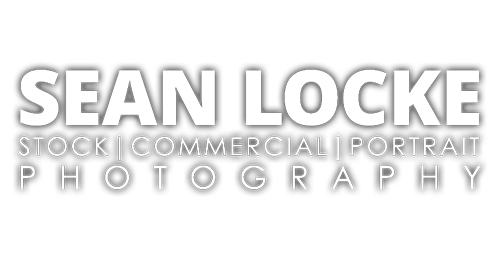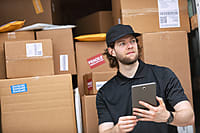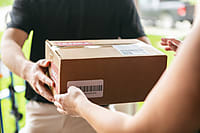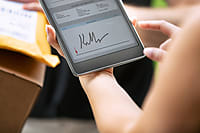I haven’t been keeping a strong eye on the Pinterest copyright infringement situation lately, having a bunch of stock shoots and other work to do. However, yesterday, it popped back up on my radar when one of my earlier comments was quoted on Mashable.com:
Pinterest may be shielded from responsibility for what its users upload, but knowingly facilitating copyright infringement, according to the Wall Street Journal, could result in a Napster-like lawsuit.
“It sure sounds like copying people’s photographs without authorization would be copyright infringement,” wrote photographer Sean Locke in February. “Yet, Pinterest seems to be encouraging people to scour the web, pinning (copying to their servers) artwork created by others.”
This article brought to my attention Pinterest’s new attempt at avoiding legal issues – the automatic, non-editable attribution link:
Attribution statements appear below the pin’s description and link to the work, its author, and the hosting provider. Currently, an attribution statement will appear when a user pins from one of the following sources: Flickr, YouTube, Vimeo, Behance, 500px, Etsy, Kickstarter, SlideShare, and SoundCloud.
In addition to attributing images pinned directly from these sources, Pinterest also recognizes when content pinned from other sites is embedded from these sources. Resulting pins will have both a link to where it was discovered, and an attribution statement. Users can edit links, but they cannot edit attribution.
That’s all great, except that Pinterest is still not recognizing ( or they’re just playing dumb ) that attribution, or saying where you stole something, is not absolution for your copyright infringement. The know this, which is why comments are not available on their blog page about the new addition. That’s like taking a car and putting a note in the windshield who you stole it from. An article on TechDirt says:
Many, many people think that attribution is a key part of copyright law, but in the US it’s really not a part of the law at all (with a few tiny, nearly meaningless exceptions). Attribution issues may come up in situations of plagiarism, but they have little do with copyright infringement, which is infringement with or without attribution.
All this attribution stuff is, is a way to quiet people who are only interested in free advertising for themselves. Pinterest is saying “Hey, no longer are we stealing your content, and people have no way to find who created it, in case they want to hire you. Now, we steal it and tell people where to find the creator.”. This does nothing to address the illegal usage of the content on Pinterest, or people’s desire to not have their content used without their permission.
What Can You Do?
Well, to stop these “Pinners”, you can use the Pinterest “NoPin” tag on your pages. But that would be admitting defeat to the burglar – putting a sign on every house saying “No, it isn’t ok to come in and take my stuff.” Instead, if you can access files on your website, you can modify your .htaccess file to have some fun. “.htaccess” is a file on your server that the server will access before serving up any content to a requester, and it has rules and other commands in there that can modify the incoming requests. For example, you can stop people from “hotlinking” to your images, or trying to serve them up on a page outside your domain.
In this case, I’ve hosted an image on Pinterest ( oh, the irony ):
 Now, in my .htaccess file on my server, I put the following lines:
Now, in my .htaccess file on my server, I put the following lines:
RewriteEngine On
RewriteCond %{HTTP_USER_AGENT} Pinterest [NC]
RewriteRule .*.(jpe?g|gif|bmp|png)$ http://media-cache5.pinterest.com/upload/269793833897648316_2Okc3Ek1_c.jpg [R]
This turns on the “rewrite engine” of the server, and if it sees a request for an image coming from Pinterest ( like from the “Pin an Image” page ), it sends back the image hosted on Pinterest’s servers. So the “Pinner” gets our funny message telling them of what they are doing. Feel free to help yourself to the code.
More Reading
By the way, here is a great blog, whose only intention is draw attention to the copyright issues at Pinterest: http://pinterest-out.blogspot.com/
Random Comments/Questions from People
A lot of the following is review, but they keep coming up…
Don’t you like free advertising?
First, not everything in life is about “free advertising”. Many content creators use the control of their works’ use to make their livelihood. Stealing, or “pinning” an exclusively licensed work, for example, could get the creator in legal issues with the business that holds the exclusive rights, and damage their future ability to make money from licensing. Also, many people just don’t like their work taken for use by others – period. Also, since the links on any Pinterest page are editable, there is no “free advertising” guarantee ( fixed somewhat, by the attribution credit noted above).
What about tumblr, and all those places? Why don’t you hate on those?
My life is not spent researching sites that steal content from others. Pinterest, however, is at the forefront, due to it’s size, as well as it’s insistence that people take what they like from the web and repost it, even going so far as to provide tools for the theft ( and further infringement with their embedding code ). It’s like telling a burglar to go out and have fun, and providing them with a crowbar.
People just are showing that they love your work and want to share it to show their love!
Pinners don’t care about the creator. They care about showing their social network that they know how to go out and find content on the web that they think their network will like and want to “re-pin”. If they cared about the creator, they would ask the creator if they have permission to use the content. They would license the works properly to show respect and provide financial support. Etc.
Pinterest is just embedding the off site image on their page – they aren’t stealing anything.
They absolutely are stealing. They are taking the content and copying it full size, up to 600×600 pixels to their servers, while stripping meta-data from the image in the process.
Well, that’s what Google does with their image search!
Google is an automated service that uses small thumbnails to represent the content found, and linked to, on internet sites. Pinterest is a warehouse of content culled from the internet, stored on their servers, whose intent is to be a collection of content, not primarily a database of exterior links.
That’s enough on Pinterest for today, but thanks to mashable.com for bringing it back to the radar.







